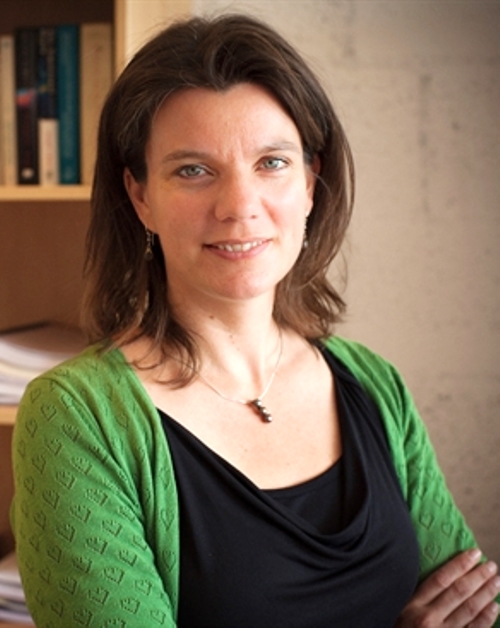Top scientists demand more EU funding for fundamental research
-
 Laboratory work at the department of microbiology. Photo: Dick van Aalst
Laboratory work at the department of microbiology. Photo: Dick van Aalst
Scientists are concerned about the planned cuts in EU research funding. Former grant winners are now uniting to voice strong dissent, Professor Karin Roelofs is one of them.
If even an elite journal like Nature gets involved in a political discussion, you know that something serious is going on in science country. The journal this week typified the European Commission’s plans to cut the budget for the European Research Council (ERC) by around 10% as ‘nonsensical. And that despite the ‘flagship of European science’ being needed more than ever in these perilous corona times, according to the editorial.
What’s going on? The ERC is an EU agency that provides grants each year for so-called unaffiliated fundamental research (€2.2 billion in 2020). These are projects in which researchers primarily want to gain a better understanding of the world around us, without the immediate prospect of a direct, practical application.
Immune system
Dutch universities have been relatively successful in securing ERC grants, Radboud University in particular. This has included research into the special properties of methane-consuming bacteria, for which Professor of Microbiology Mike Jetten received an ERC grant in 2008 and 2013. Or subsidies for a deeper understanding of our immune system – professors Carl Figdor and Mihai Netea both received an ERC Advanced Grant last year of about EUR 2.5 million each.
Especially this latter kind of research can provide valuable knowledge that can help us escape the corona pandemic, writes Nature. To date, 180 ERC projects have already proven highly relevant during the current corona crisis. Especially during a pandemic, you shouldn’t be looking to cut back on this kind of research, the British journal argues.
Worrying
Yet that is exactly what the European Commission is proposing. It intends to reduce the planned budget for this type of research from EUR 94 billion (for the period 2021-2027) to EUR 80 billion. Only € 1.9 billion per calendar year would remain available for ERC projects -– well below the current € 2.2 billion.
‘Very worrying’, says Karin Roelofs, professor of psychopathology at the Behavioural Science Institute and Donders Institute. In 2013, she won her own ERC Starting Grant and an ERC Consolidator Grant in 2018. ‘Most fundamental research depends on ERC funding, because there are almost no other grants that can provide funding for top-level research driven purely by curiosity.’
‘Politicians prefer to hear how we can solve a concrete problem’
Research funding is increasingly focusing on how results will benefit society in the short term. It’s a shame, Roelofs thinks: ‘Politicians like to hear that we are investigating how to solve a concrete problem. Unfortunately, the message that fundamental research in particular contributes to long-term solutions in areas such as climate or health is more difficult to sell.’

This makes the ERC programme vulnerable to losing out if Brussels has to make cuts, says Roelofs. ‘While it is true that political considerations do not play a role in the assessment of ERC applications. Scientific excellence is the only criterion. That is what makes the ERC so successful.’ Evaluation figures from 2018 confirm this. Half of the projects awarded led to scientific progress and one in five to a major breakthrough. Numerous patents also arise from ERC projects, which are not the main objective of the programme.
Petition
In order to increase pressure on Brussels, Roelofs, together with eighteen fellow laureates – from across Europe and hailing from different disciplines – set up an organisation to champion the interests of the ERC. Roelofs is vice-chair of this Association for ERC grantees. ‘We want to stand up for unaffiliated research. The ERC, as an EU agency itself, cannot act in its own defence, but laureates of course can.’
As one of the first activities this month, the association, together with the activist group ‘Friends of the ERC’, will submit a petition to European politicians calling for the planned cuts to be reversed. The petition already has more than 22,000 signatures.
Not an elite club
But the association of ERC laureates has other plans. Roelofs: ‘We want to be the voice of scientific excellence in general. We are not an elite club, but hope that as many people as possible who have ever received an ERC grant become members. In this way, we can stand up for the importance of curiosity-driven frontier research even better’ According to Roelofs, Radboud University supports the organisation financially and in other ways.
The Association for ERC grantees will also set up a mentoring system. In doing so, it aims to support countries and universities that receive few ERC grants, e.g. in Southern and Eastern European countries. Roelofs: ‘The success and usefulness of the ERC depends on a fair redistribution of European funds. As laureates, we can help with this.’
Debate
Next Thursday, during the (online) European Research and Innovation Days, the Association for ERC grantees will be officially launched. The petition will then also be handed over to EU officials, followed by a debate with Roelofs and ERC President Jean-Pierre Bourguignon, among others.
And then it’s a waiting game to see if the lobby has an impact. The answer will come at the end of this year, when the European Commission takes the final decision on the budget for Horizon Europe, the programme of which the ERC fellowships are part.



